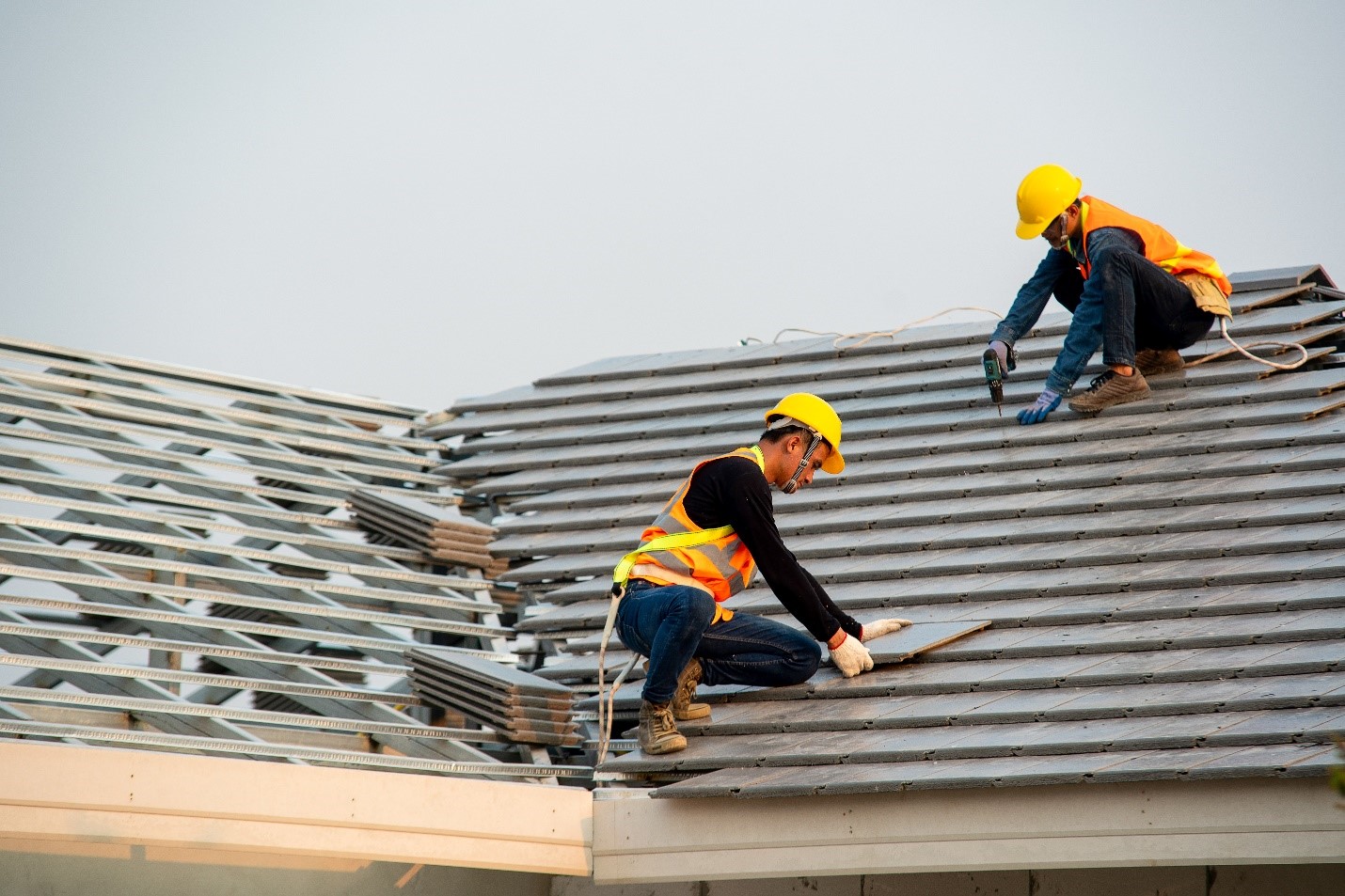The importance of roof replacement cannot be stressed enough. It not only improves your home’s appearance but also ensures the safety and stability of the structure. Some common reasons for roof replacement include repairing damage from weather, age-related wear-and-tear, or upgrading materials for better energy efficiency.
With cost being among the first things to consider when planning a roof replacement project, it is crucial to establish your budget early on. This will help guide your choices in materials and labor, ensuring you are investing wisely in a project that meets both your aesthetic and functional goals.
In this piece, we shall delve into various aspects of roof replacement, including the common reasons to replace your roof as well as the intricacies involved in roof replacement as far as the costs are concerned.
How Much Does Roof Replacement Cost Really? – It Depends
When evaluating the cost of a roof replacement, keep in mind that various factors come into play. These can include the size and slope of your roof, the type of materials you plan to use, and labor costs in your region. Additionally, factors such as the complexity of your roof’s design, the roofer you choose, and any necessary permits or licenses may also influence the overall expense.
Getting a Quote from a Reputable Local Roof Contractor (e.g. in Denver)
To determine an accurate budget for your roof replacement project, it’s essential to get quotes from reputable roofers in your local area. This will provide you with detailed pricing information tailored to your specific needs and location.
As an example, here’s what this means. If your property is based in Colorado’s capital, consulting with an experienced roof replacement contractor in Denver will be a crucial step in planning the best approach for your home improvement project.
5 More Crucial Factors Affecting What You’ll Pay on Roof Replacement
Here’s a breakdown of some crucial factors that might determine what you end up spending on your next roof replacement project.
1. Size and Complexity
One of the major factors affecting roof replacement costs is the size of your roof, as it determines how much material you will need. Additionally, complex roof styles and designs featuring multiple levels, intricate patterns, or steep slopes can raise costs due to the extra time and materials required to navigate these intricacies.
2. Roofing Material Selection
The type of roofing material you choose can greatly impact the overall cost. Common options range from budget-friendly asphalt shingles to pricier options like metal or slate roofs. Consider both aesthetics and durability when selecting materials.
3. Labor Costs
Depending on your location, labor charges for roof installation may vary significantly. As earlier hinted, research local rates and get quotes from professional contractors, ensuring they possess proper licensing and experience for your chosen roofing system. Don’t forget to check their turn-around time on roofing projects as well.
4. Removal and Disposal Charges
Removing your old roof generates waste that needs proper disposal — a service often included in your overall project estimate but can sometimes be an additional expense. Consider all charges related to removing, hauling away, and disposing of old roofing materials, alongside costs associated with permits and roof inspection where necessary.
5. Time of Year
Another factor that could affect the cost is the season during which you choose to replace your existing roof system. In regions with distinct weather patterns or seasonality changes, the time of year may increase demand for services or require contractors to work around inclement weather conditions — thus driving up prices.
Average Roof Replacement Costs by Material
● Asphalt Shingles
As the most commonly used and budget-friendly roofing material in the US, asphalt shingles typically cost between $1.50 and $5.50 per square foot installed. This price range accounts for variations in shingle quality and local labor rates.
● Metal Roofing
While more expensive than asphalt shingles, metal roofing is known for its durability, energy efficiency, and long lifespan. Depending on the specific type of metal (steel, aluminum, copper), prices can range from $5 to $14 per square foot installed.
● Clay or Concrete Tiles
These materials are heavier and require additional structural support but boast a long-lasting and attractive option for homes with Mediterranean or Southwest architectural styles. You can expect to spend between $6 and $15 per square foot on clay or concrete tiles.
● Wood Shakes or Shingles
For a natural aesthetic with better insulation properties, you might opt for wood shakes or shingles as your roof replacement material. However, be prepared to pay a bit more — averaging between $4 and $9 per square foot.
● Slate or Natural Stone
If you’re looking for ultimate durability paired with a timeless classic appeal, slate or natural stone might be worth considering. This is despite its higher price point ranging from around $10 up to an even pricier level of around $75 per square foot based on factors like stone quality and the complexity of installation.
In conclusion, keeping these valuable tips in mind when determining the cost of your roof replacement project will ensure you make informed decisions about materials, labor, and other essential factors. A well-planned and executed roof replacement is a smart long-term investment for your home’s safety, stability, and curb appeal.
So go ahead and use this knowledge as a foundation to explore your options, seek professional guidance from reputable local contractors, and embark on the journey towards an improved and well-protected living space. Happy roofing!

